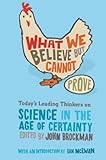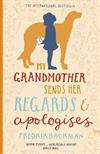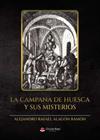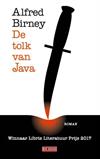
What We Believe but Cannot Prove: Today's Leading Thinkers on Science in the Age of Certainty (Edge Question Series)
1 journaler for this copy...
8 stars: Very good.
Another from the exemplary edge.org series. This was the first I received (though not first read) give to me by Lynne. A wonderful series.
From the back cover: Scientific theory, more often than not, is born of bold assumption, disparate bits of unconnected evidence, and educated leaps of faith. Some of the most potent beliefs among brilliant minds are based on superstition alone--yet that is enough to push those minds toward making the theory viable.
John Brockman, editor of the Edge, asked a group of leading scientists and thinkers to answer the question: what do you believe to be true, even though you can't prove it? This book brings together the very best answers from the most distinguished contributors. Thought provoking and hugely compelling, this collection of bite size though experiments is a fascinating insight into the instinctive believs of some of the most brilliant minds of today.
-----------------------
I find this series to be wonderful. It's hard to rate the book as a whole, as certain essays are more compelling and interesting than others. Certainly as noted above, the thought experiement is fascinating. There are trends in responses, about existence, or not, of God, about existence, or not, of life on other planets, on the nature of consciousness and free will (or lack thereof). The latter caused me food for thought.
A few excerpts/ essays that appealed to me particularly:
Randolph Neese: I can't prove it, but I'm pretty sure that people gain a selective advantage from believing in things they can't prove. Those who occasionally are consumed by false beliefs do better in life than those who insist on evidence before they believe and act. Those who are swept away occasionally by emotions do better than those who calculate every move. ...I'm not advocating irrationality or extreme emotionality. Many, perhaps most, of the problems plaguing individuals and groups arise from actions based on passion. ... People who lack passions suffer several disadvantages.
Daniel Goleman: I believe but cannot prove that today's children are unintended victims of economic and technological progress. ... Even as the average IQ of the american child has steadily increased over the last century, the past 3 decades have seen a major drop in their most basic social and emotional skills--the very abilities they need to become effective workers and leaders, parents, and spouses, members of the community.
Daniel Dennett: I believe, but can't yet prove, that acquiring a human language (an oral or sign language) is a necessary precondition for consciousness.-- in the strong sense of there being a subject, an "I"... It would follow that nonhuman animals and prelinguistic children--although they can be sensitive, alert, responsive to pain, and cognitively competent in many ways, are not really conscious in the strong sense. ... This assertion is shocking to many people who fear it would demote animals and prelinguistic children from moral protection, but this would not follow.
Another from the exemplary edge.org series. This was the first I received (though not first read) give to me by Lynne. A wonderful series.
From the back cover: Scientific theory, more often than not, is born of bold assumption, disparate bits of unconnected evidence, and educated leaps of faith. Some of the most potent beliefs among brilliant minds are based on superstition alone--yet that is enough to push those minds toward making the theory viable.
John Brockman, editor of the Edge, asked a group of leading scientists and thinkers to answer the question: what do you believe to be true, even though you can't prove it? This book brings together the very best answers from the most distinguished contributors. Thought provoking and hugely compelling, this collection of bite size though experiments is a fascinating insight into the instinctive believs of some of the most brilliant minds of today.
-----------------------
I find this series to be wonderful. It's hard to rate the book as a whole, as certain essays are more compelling and interesting than others. Certainly as noted above, the thought experiement is fascinating. There are trends in responses, about existence, or not, of God, about existence, or not, of life on other planets, on the nature of consciousness and free will (or lack thereof). The latter caused me food for thought.
A few excerpts/ essays that appealed to me particularly:
Randolph Neese: I can't prove it, but I'm pretty sure that people gain a selective advantage from believing in things they can't prove. Those who occasionally are consumed by false beliefs do better in life than those who insist on evidence before they believe and act. Those who are swept away occasionally by emotions do better than those who calculate every move. ...I'm not advocating irrationality or extreme emotionality. Many, perhaps most, of the problems plaguing individuals and groups arise from actions based on passion. ... People who lack passions suffer several disadvantages.
Daniel Goleman: I believe but cannot prove that today's children are unintended victims of economic and technological progress. ... Even as the average IQ of the american child has steadily increased over the last century, the past 3 decades have seen a major drop in their most basic social and emotional skills--the very abilities they need to become effective workers and leaders, parents, and spouses, members of the community.
Daniel Dennett: I believe, but can't yet prove, that acquiring a human language (an oral or sign language) is a necessary precondition for consciousness.-- in the strong sense of there being a subject, an "I"... It would follow that nonhuman animals and prelinguistic children--although they can be sensitive, alert, responsive to pain, and cognitively competent in many ways, are not really conscious in the strong sense. ... This assertion is shocking to many people who fear it would demote animals and prelinguistic children from moral protection, but this would not follow.















